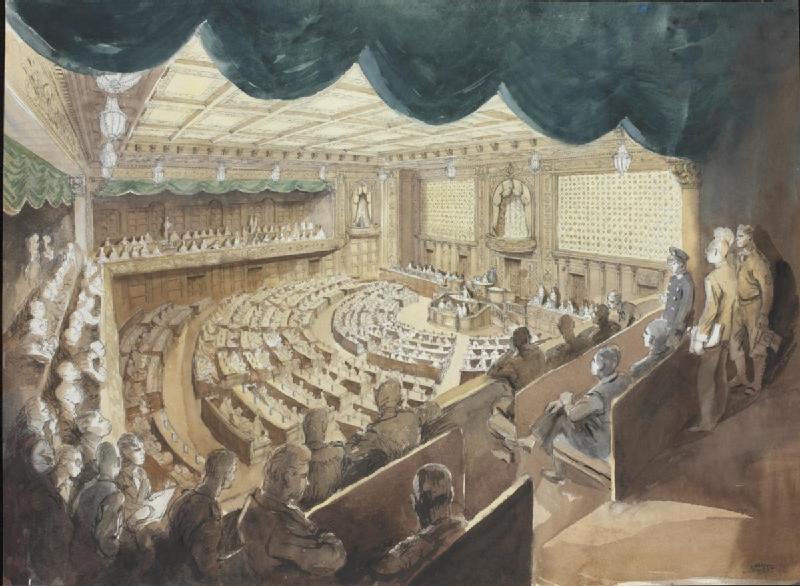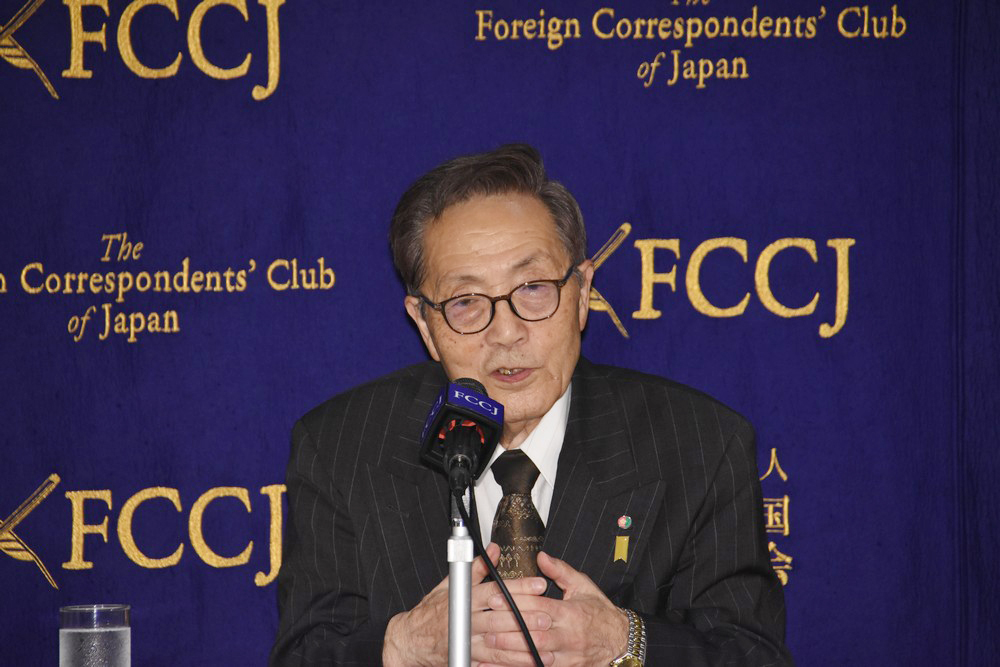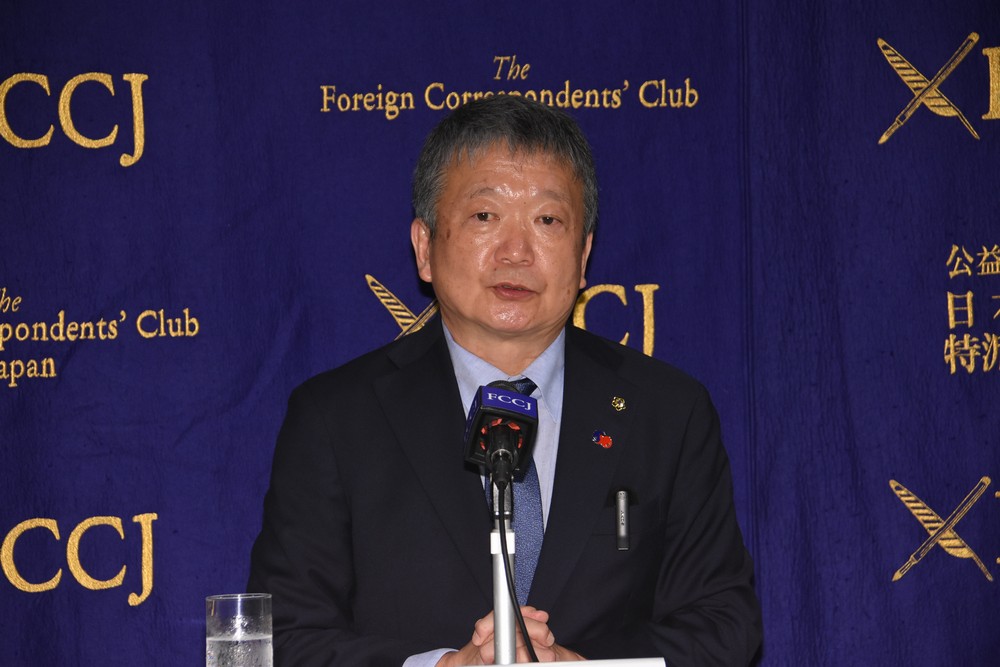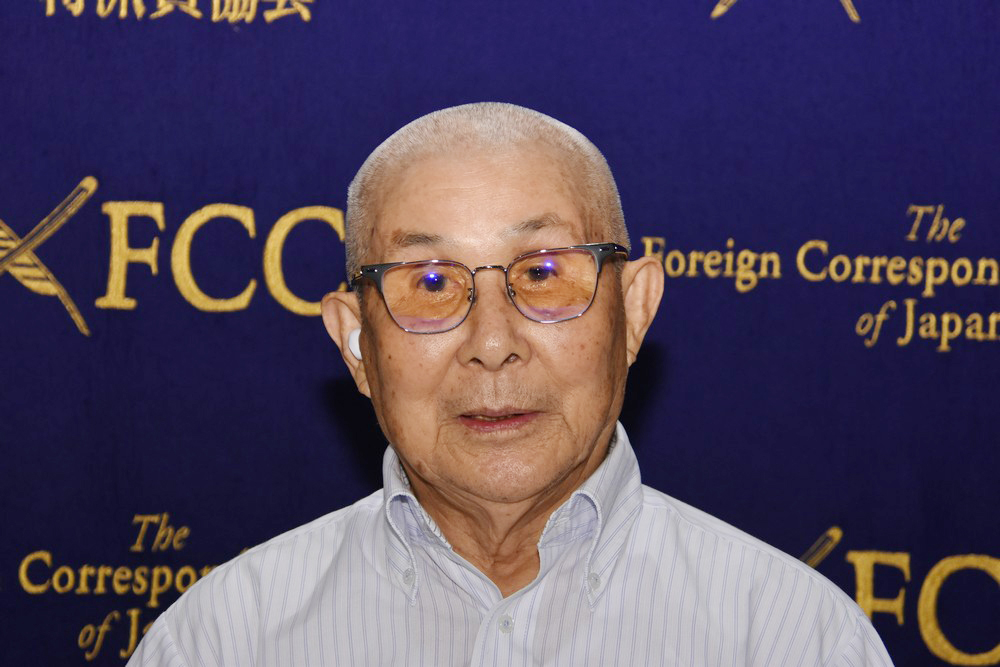Issue:
August 2025
The FCCJ held several events to mark the 80th anniversary of the end of World War II

The Foreign Correspondents’ Club of Japan marked the upcoming 80th anniversary of the end of World War II with speakers, films, and events to help document what has – and hasn’t – changed since 1945, even including a walk down the block.
Russia’s control of the Northern Territories – Etorofu, Kunashiri, Shikotan and Habomai – remains unchanged, as Yuzo Matsumoto, director of the Association of Residents of Chishima and Habomai Islands, noted at the Club in July before calling for the islands’ return to Japan.
Matsumoto also demanded the resumption of visits by former Japanese residents to their ancestral graves – a tradition discontinued by Moscow after Tokyo’s opposition to Russia’s war in Ukraine.

Russia and Japan never signed a peace treaty to formally end the war, and bilateral talks about the islands’ future were suspended by Moscow last year. In response, Hokkaido Prefecture is sending ships from Nemuro port until August 21 to give former residents and their families a chance to conduct on-board memorial services near the islands.
However, the average age of former island residents is 89, and the population that once lived there has declined dramatically. Survivors are reportedly pessimistic on whether they will live to see the return of the islands to Japan. Some would accept the return of only two islands - but not Matsumoto.
“Some members and their supporters are in favor of the return of just two islands, but there’s no point in asking if not for all,” he said. “The four islands together are a single community and share historical ties.”

Kim Ijung, president of the Korean Residents Union in Japan (Mindan), spoke on the 60th anniversary of the normalization of ties between Japan and South Korea, which came two decades after Tokyo’s colonial rule over the Korean peninsula ended with its wartime defeat. Mindan has long represented ethnic South Korean residents in Japan along with Chongryon, which has ties to the North.
The lifelong Japan resident spoke shortly after the upper house elections, which saw the right-wing Sanseito and their “Japanese First” platform increase their seats from one to 14. Party leader Sohei Kamiya used anti-foreigner rhetoric and made a racial slur while on the campaign trail, although the impact on the vote was muted.
Asked if Japan going was backwards in terms of its approach to its foreign community, Kim replied: “The results of the election really shocked me that this kind of political party could make such arguments and do well. Mindan has worked to counter hate speech since 2009 … if this tendency grows further, we have to think about how to tackle this with more and more foreigners in Japan.”

Perhaps the FCCJ’s most unlikely anniversary speaker - considering the nature of his former occupation – was 97-year-old Tatsukuma Ueno, who flew in the Imperial Army’s 66th Squadron as a kamikaze pilot. He enlisted in the military at 15 while living in Beijing and, after two years of training, joined his unit in 1945 to serve in the Battle of Okinawa. A few months later, Ueno was in Kyushu battling malaria when he learned on August 15, 1945, that Japan had surrendered and his mission cancelled.
Ueno’s appearance was facilitated by the Tokkotai Memorial and Commemoration Association, which honors former members of the Special Attack Forces. When asked whether he had survivor’s guilt, having survived a war that killed so many of his comrades, Ueno said he had been distraught after Japan’s surrender but had been encouraged by his family to resume his studies and start work.
“When I returned home, I was unable to think about anything for about a month … I was in a daze,” Ueno said. “I went back to school and was able to psychologically recover. A number of colleagues died in the Tokkotai attacks, in just three months, more than 70. That’s why every year I go to their memorial.”
War films shown at the FCCJ included the documentary In Their Own Words by director Fumie Matsubara, which tells the story of 15 young Japanese women handed over to Soviet soldiers as “sexual offerings” by their own community to ensure safe passage home from Manchuria. The film shows the violence they endured in the final days of Japanese militarism and the shame and discrimination they faced after returning to Japan.
Also screened at the club was Army on the Tree by Okinawan director Kazuhiro Taira, based on a true story of two soldiers who escape heavy fighting on Ie Island by hiding for two years, unaware that the war had ended.
The FCCJ also hosted a tour of the Dai-Ichi Insurance Building in Yurakucho, which served as the former GHQ of U.S. Gen. Douglas MacArthur. Members viewed the room, chair, and phone used by the head of U.S.-led Occupation at a pivotal moment in Japan’s post-war history.
I had personal reasons for wanting to join the tour. I had visited the building during my first summer in Japan, on the 40th anniversary of the end of the war. I sat in MacArthur’s chair and pretended to speak on his rotary phone. I’m sure the room has aged much better than I have, while the building, one of the few structures in the neighborhood that survived the war, is just one way in which FCCJ members can delve into history during this anniversary year.
Dan Sloan is president of the FCCJ

